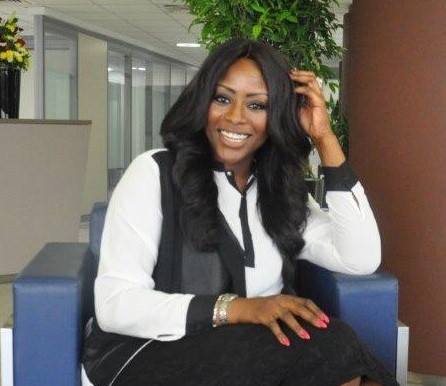Features
Talking Law with Ivie Omoregie: Making a Case for Consequences for Cyber Bullying
 Anyone living in any city in this world will be aware of the phenomenon that is now social media. In recent years we have seen a significant shift from print media to online platforms. Social media has now become the go-to platform for the swift distribution of news and information to a potential audience of billions. Interestingly, the audience ranges from the gateman to the most sophisticated executives; the simple truth is that every one checks social media sites (you will be shocked at the number of bank MDs with secret Instagram handles). Most see it as swift and easy consumption of information, with little or no real effort necessary; the information is available on most hand held devices, so can be checked virtually anywhere.
Anyone living in any city in this world will be aware of the phenomenon that is now social media. In recent years we have seen a significant shift from print media to online platforms. Social media has now become the go-to platform for the swift distribution of news and information to a potential audience of billions. Interestingly, the audience ranges from the gateman to the most sophisticated executives; the simple truth is that every one checks social media sites (you will be shocked at the number of bank MDs with secret Instagram handles). Most see it as swift and easy consumption of information, with little or no real effort necessary; the information is available on most hand held devices, so can be checked virtually anywhere.
In Nigeria, over the last 10 years, we have seen everything from anonymous sites/handles to professional commentators who are known across several blog platforms. Unfortunately, with the growth of social media, we have also seen the growth of unprecedented numbers of people misusing this platform; effectively waging war against targets, under the cloak of anonymity
The bad thing about social media is that the majority of people who take in the information are either simply not privy to the “inside gist”, or will not do their personal investigations to ascertain the truth of a situation. They are simply there to absorb the information being fed to them, and truthfully at some point in our lives we have all been guilty of this.
Recently Mrs Aishah Ahmad CFA, CAIA was recommended for the role of Deputy Governor of the CBN, and with it came an onslaught of attacks from unknown persons. Many claim she is too young for the job (maybe preferring a 70 year old who has long since lost all agility), whilst other question her qualification for the role, ignoring the fact that she has 20 years of working experience and has qualifications from top institutions across the globe. I was saddened when I saw this cyber attack, as in my honest opinion it was clearly malicious and lacked any merit.
This article talks about cyber bullying and the legal ramifications for same.
What Is Cyber Bullying?
“Deliberate and incessant harm perpetrated through the use of mobile telephones, computers and other electronic devices”
False statements about another posted on the Internet, whether by video, audio or written, intended to attack and harass are considered libel. As with all forms of attacks, persons who might have experienced cyber bullying often suffer from anxiety and stress as a result; they continuously fear renewed attacks, not knowing the extent of the attack (i.e. who has seen the online onslaught) and to a large extent feeling helpless to defend themselves.
Defamation of Character vs. Freedom of Speech
“Defamation of character is the act of damaging the good reputation of someone whether intentionally or otherwise”
In a previous article, I broke down the meaning of and penalties for defamation of character, emphasizing that defamation laws protect people from damaging and untrue statements. I have come to learn that defamation laws are often in conflict with laws that protect one’s right to freedom of speech. A simple test is that where the maker of a seemingly defamatory statement can prove that the statement made was true, then freedom of speech wins. No one should be punished for making a statement that is the whole truth.
“Freedom of speech is one’s right to express their opinions without restraint, legal penalty or censorship”
However, many do not appreciate the notion that just as it is important to protect one’s fundamental human right to the freedom of speech, it is even more important to protect people whose reputations, careers, health and or finances are suffering or about to suffer.
Where an opinion is an affirmation of negative character and understood by the listener/reader as being a fact that can be verified, then the makers of these statements cannot hide under the guise of opinion. The statement will be deemed as slander/libel.
Legal Ramifications
Recent case law from other jurisdictions has found that victims of cyber bullying are entitled to bring a court action against the parties responsible for it; unfortunately we are yet to see successful claims for cyber bullying in Nigeria.
By virtue of decided legal principals, a claimant must establish that: –
a. The defendant owed a duty of care to the claimant;
b. The defendant breached this duty by acting unreasonably and recklessly;
c. The unreasonable and reckless conduct of the defendant caused injury to the claimant;
d. The plaintiff actually suffered an injury for which they should be compensated.
Under case law, individuals owe a general duty to each other not to cause any harm or hindrance to the conduct of each other’s day-to-day lives.
Recently in other jurisdictions we have seen several instances where these victims have been awarded millions of dollars in compensation. This is because the Internet Protocol Address (IP Address) is easily traceable. This unique number links all online activity thus making all anonymous contributors visible and easily traced. The owners of all blogs can see all IP Address on the admin end of their sites and can be mandated by the authorities to produce same.
Unfortunately in Nigeria we have not seen this growing trend of blog owners being successfully sued for the content they choose to post on their platforms. However this is not to say they are not culpable for their actions. With regard to the blog commentators, in reality it is slightly more difficult to trace IP Addresses, as general online searches only reveal the general whereabouts and the phone network provider. However, one may obtain the exact whereabouts of a contributor by mandating that the identified network provider investigate and produce same.
Conclusion
Some people say “but it’s just a stupid blog” “it doesn’t matter”, not really appreciating the damage that can be caused by cyber bullying. Unlike print media that can only actually have a predetermined geographical reach, with online content even your great aunty living in Kukawa Local Government in Bornu state can see it, as long as she has access to the internet.
In the case of Mrs Aishah Ahmad many may not have seen her work ethic, her attention to detail, nor can they understand the intricate financial knowledge she possesses. They will not know that she has been working 70 hours a week for the last 20 years and simply cannot understand the extent she has embarked on to empower women. All they might hear is “one lady has been appointed CBN Deputy Governor and people are saying she is not qualified for the role”, when in actual fact she is possibly the most qualified person for the role… compared to her predecessors.
The funniest thing is in reality the negative social media onslaught will not reverse the decision to appoint someone by our current President, nor will it affect her ability to perfectly perform her duties… so what is the point if not to simply harass, embarrass and bully knowing there is no fear of reprisal?
I believe everyone should be aware that we have a moral obligation to one another, even where penalty for the action might be difficult.


















